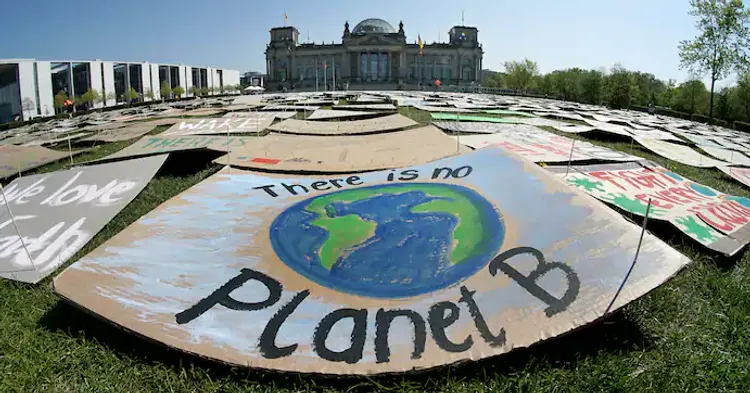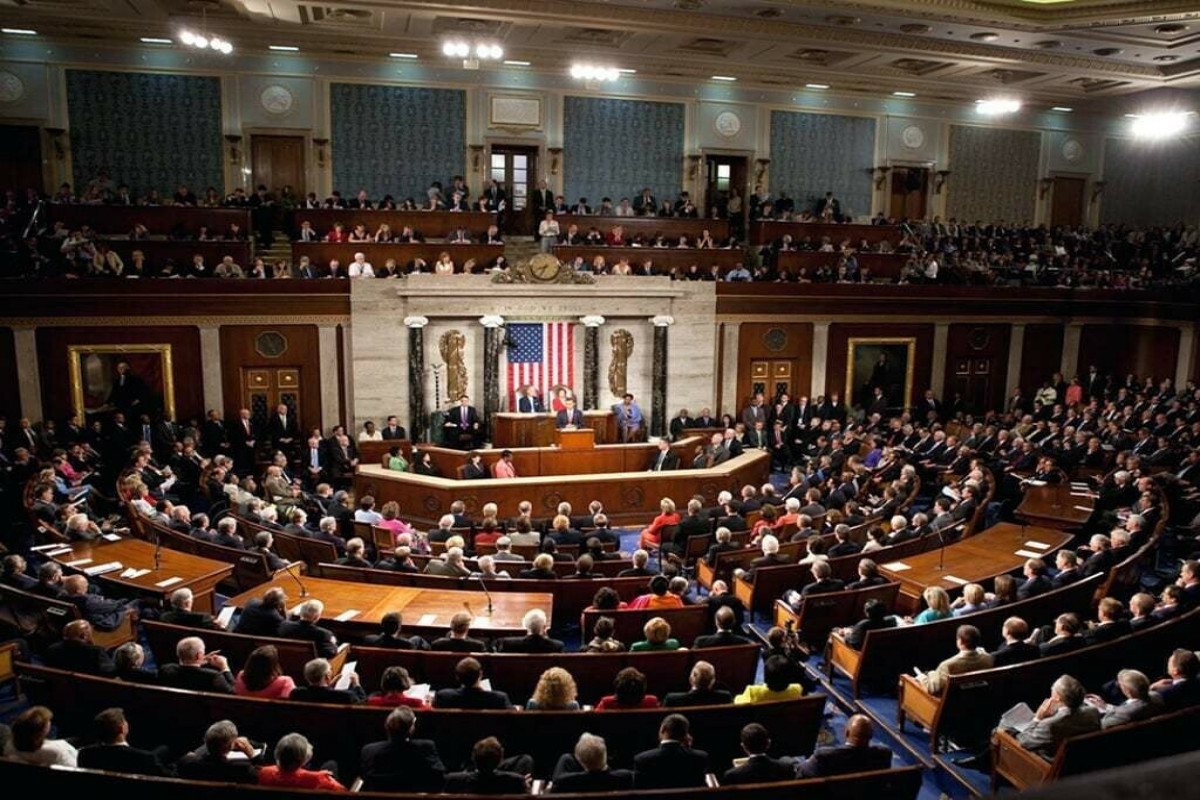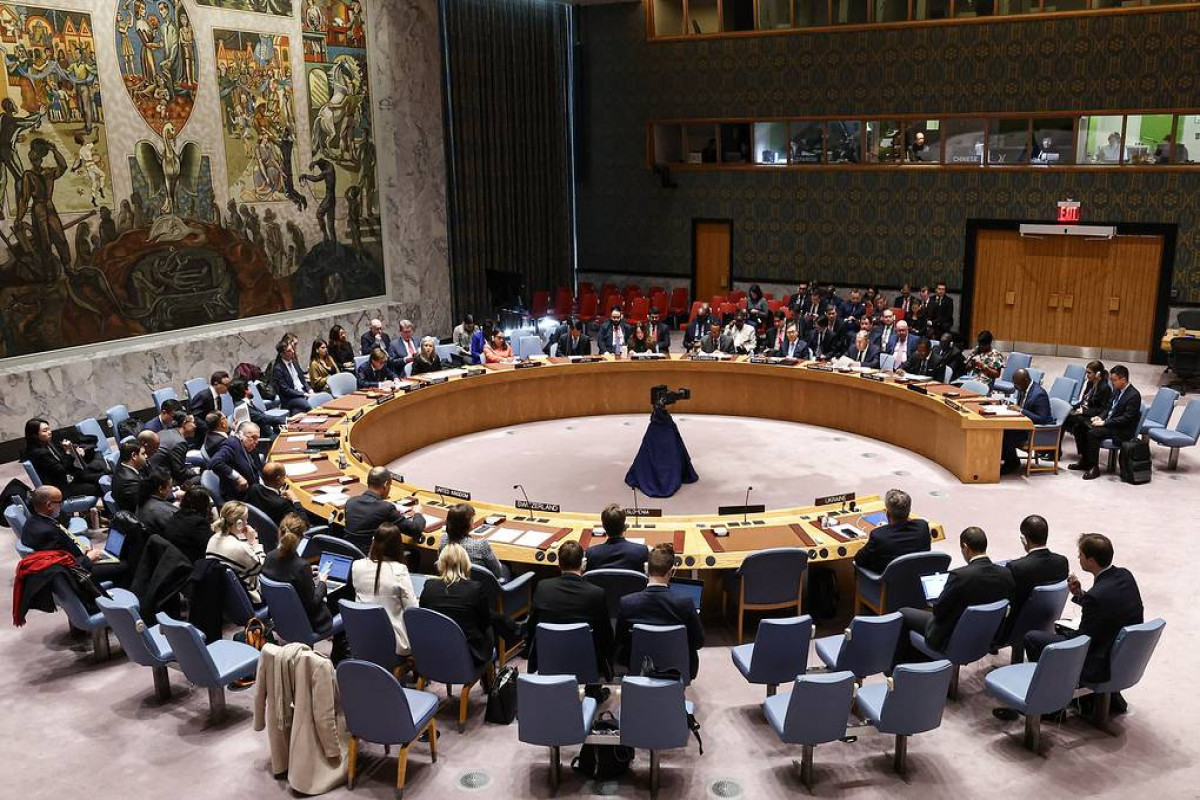The United States has officially rejoined the Paris climate accord. That was the easy part, APA reports citing Washington Post.
Friday marks the first day the country is again part of the international agreement meant to stop the world from warming past a critical climate change threshold — a global average of 2 degrees Celsius above preindustrial levels.
Now the Biden administration will try to make up for lost time and repair the country’s standing among nations in the global fight against climate change after President Donald Trump made the United States the only nation to drop out of the accord.
From his first moments in office, President Biden signaled he is serious about curbing U.S. greenhouse gas emissions and prodding other nations to do the same, repeatedly calling rising temperatures a crisis and an “existential threat” to civilization. Hours after being sworn in, he sent a letter to the United Nations kick-starting the 30-day process for rejoining the landmark 2015 accord that had been brokered under his old boss, President Barack Obama.
“It’s good to have the U.S. back in the Paris agreement, but sadly we have no time to celebrate,” said Laurence Tubiana, CEO of the European Climate Foundation and an architect of the Paris accord. “The climate crisis is deepening, and this is the year we need all major polluters to step up and deliver stronger plans to deliver a safe, clean and prosperous future for everyone.”
Fulfilling that campaign promise amounts to a stark repudiation of Trump, who spent years disparaging the global scientific consensus that human activity is causing the planet to warm. Although the United States technically left the Paris accord for only 107 days, Biden’s to-do list is lengthy.
The administration plans to ratchet up the country’s own commitments to reducing emissions while pressing emerging economies such as China and India to curtail construction of coal-fired plants and Brazil to preserve more of the Amazon. At the same time, Biden will have to contend with a deeply divided Congress and other competing factions at home as his administration crafts a regulatory and legislative agenda for cutting emissions.
The Biden administration is reentering the agreement with plenty of pomp. On Friday, John F. Kerry, Biden’s special climate envoy, will join the Italian and British ambassadors to discuss ways of working together. And the White House is planning to host a broader summit of presidents and prime ministers on April 22 to mark Earth Day.
All of that is prelude to a U.N. climate conference in Scotland in November, where world leaders will be expected to arrive with more ambitious climate pledges. Existing commitments to cut emissions are, according to many estimates, woefully inadequate to forestall dangerous warming that is already evident around the world in the form of wildfires, drought, melting glaciers, loss of species, coastal flooding and other extreme weather.
Andrea Leadsom, a member of the British Parliament and former leader of the House of Commons, was among those cheering the U.S. return, particularly coupled with the fact that China has pledged to reach net zero emissions by 2060. “Success, however, is certainly not guaranteed,” Leadsom said in a statement. “And it is vital that these two countries work with other nations, including the United Kingdom, to achieve their goals and encourage others to be equally ambitious.”
Biden has kicked off the process of setting a new national goal for cutting emissions that is more ambitious than Obama’s target of slashing carbon emissions by about a quarter below 2005 levels by 2025. But analysts say the United States is at risk of missing even that goal as Trump eased regulations that would have reined in carbon pollution.
Tubiana, of the European Climate Foundation, said all countries need to ramp up their emissions-cutting goals ahead of the summit, but the United States especially must make a bold new promise. “The science tells us this means a target of at least 50 percent [greenhouse gas] cuts on 2005 levels by 2030, ideally more,” she said.
The World Resources Institute, a sustainability think tank, is pressing the Biden administration to set that 2030 goal, too. “Obviously, we lost four years of federal leadership during the Trump administration, which may make it more difficult to hit that 2025 target,” said Dan Lashof, WRI’s U.S. director.
But he added, “What we need now is to raise ambition and set a path for the next decade."
In the wake of Trump’s decision to leave the Paris agreement, many cities, corporations, universities, nonprofit groups and some states kicked off their own efforts to reduce their carbon footprints and keep the country on track, forming a coalition called We Are Still In.
“Over the last four years, Americans across the country have continued pushing forward and cutting emissions,” billionaire and former New York mayor Mike Bloomberg said on a call Thursday with reporters. “The reason is simple: They understand fighting climate change strengthens our economy and improves people’s health.”
California, for instance, announced plans to phase out sales of new gasoline-powered cars by 2035 while New York has laws on the books aiming to produce 100 percent zero-emission electricity by 2040.
Bloomberg, who noted that coal plants had closed at an even faster clip under Trump than they did under Obama, was a major funder behind that push on behalf of public officials and private industry in recent years.
“It effectively held the line until this moment,” said Jeff Nesbit, executive director of Climate Nexus, a firm that highlights climate effects and clean-energy initiatives across the country. “
Yet there is only so much local governments can do on their own. To match whatever new Paris goals Biden sets, his administration has directed agencies to begin unraveling Trump’s environmental policies and is teeing up major infrastructure legislation that will aim to bolster clean power and electric cars.
“We lost four years when Donald Trump decided to withdraw from the Paris agreement," Hindou Oumarou Ibrahim, founder of the Association for Indigenous Women and Peoples of Chad, told reporters in a call this week.
“During those four years, consequences for developing countries have been terrible," she said. “In Chad, my country, we have faced drought, floods, [destruction] of our crops, heat waves. That has caused food insecurity, conflict between communities and increasing conflict between regions just to access natural resources.”
Like others around the world, she welcomed the U.S. reentry into the global fight to combat climate change. But she said just cutting its own emissions is not enough. Rather, the United States must help poorer and more vulnerable nations do the same, said Ibrahim, who urged the Biden administration to support the Green Climate Fund, a U.N. program that helps developing nations with adaptation and mitigation projects.
“We need the U.S. to stand with us and help who are leading these battles today," she said.






